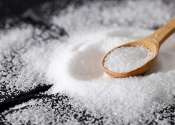Landmark study shows simple salt swap could prevent millions of deaths each year
Replacing table salt with a reduced-sodium, added-potassium 'salt substitute' significantly reduces rates of stroke, heart attack and death, according to the results of one of the largest dietary intervention studies ever ...
Aug 30, 2021
3
910









